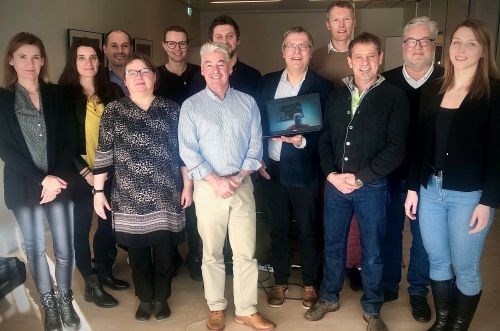Athletes and academics join forces to open more avenues for athlete influence

06.03.2020
By Play the GameWho has the right to speak on behalf of the athletes?
This is one of the most disputed questions in international sport right now. It has become particularly important in the wake of a number of scandals – ranging from state-sponsored doping over sexual abuse and widespread corruption – where it has been evident that the athletes affected were not heard.
The past years have revealed the sensitive politics embedded in the question:
The Russian-international doping scandal has led to conflicts between the athletes’ committees of WADA and the IOC over who was the most legitimate representatives of athletes. Professional athletes increasingly organise in unions, but sports federations often reject unions as a channel for athlete influence.
Athletes committees in sports federations should expect independence but are too often appointed by the top leadership to echo the official policies. And new activist groups engage in the public debate, also claiming to be the true voices of athletes.
Backed with €251,000 by the Erasmus+ programme of the European Union, a group of athlete representatives and academic researchers met 27-28 February 2020 in Vejle, Denmark, to embark on the project “Strengthening Athlete Power in Sport” (SAPIS).
As the title highlights, the main objective of the group is to “strengthen athletes’ influence and representation in sport through increasing democratisation of sports governance and management.”
To achieve this by the end of the project period in 2022, the academics and athletes will work together to
- map existing formal and informal athlete representation structures and powers with the 35 Olympic Sports and some non-Olympic sports
- identify good practice and potential best practices for athlete representation, by studying also other sectors
- analyse strengths and weaknesses linked to athlete activism in less formal settings that are not necessarily linked to democratic representation;
- develop innovative solutions for athlete representation in sport and athlete participation in the sports political debate
- build capacity among athletes, sports leaders, and policymakers
A look from both sides
While Play the Game has the overall coordination of the project, the scientific coordination lies in the hands of Mike McNamee, currently Professor of Applied Ethics at Swansea University, but in transition to a full-time position at KU Leuven in Belgium where he has been appointed as Professor of Ethics and Integrity at one of Europe’s most prestigious universities.
“As a researcher, I am really excited about working with a group of expert practitioners who are in the everyday world of sport policy and practice dealing with the challenges of of athlete representation. It is going to be exciting to see what we can produce to change the world of sports governance,” professor McNamee said after the first meeting.
Despite McNamee's move, Swansea University will remain in the project, and the other academic institutions are Utrecht University, University of Ljubljana, and Pompeu Fabra University from Spain.
The athletes’ groups in the project are EU Athletes, the Athletes Committee of the Dutch sports confederation NOC*NSF, and the Football Players Association of Finland.
Chiel Warners, a former decathlete representing the NOC*NSF and with solid experience from WADA’s Athlete Committee, is happy that the project also aims at helping the sports federations:
"I think this project is a great opportunity for athletes to be empowered and get tools to be active in athlete representation and represent themselves. The uniqueness of this project is that it also looks at perspective of the organisations athletes are part of to see why things are not working as well as they should where it comes to athlete representation. It would help the organisations to see the benefits of good athlete representation. If we work from both angles, the chances of success are best," he says.
Experimental project
What has become even clearer after the first project meeting, is that the project is experimental and that it is much too early to predict a specific end result.
“At first sight, researching athletes and representation seems to be obvious and unproblematic, and the only problem is that athlete representation is not implemented in practice. However, it turns out that it is very complicated,” acknowledges professor Simona Kustec Lipicer from the University of Ljubljana.
The project director, Jens Sejer Andersen from Play the Game, believes it is fundamental to recognise that athlete voices have many legitimate channels to move through:
“Our pioneer task here is to actually get an overview over the various kinds of athlete representation, their benefits, their downsides and see if we can develop new platforms that can create more synergy between athlete voices and maybe new methods of giving the athletes their legitimate rights to influence the sport they are the primary agents of.”





